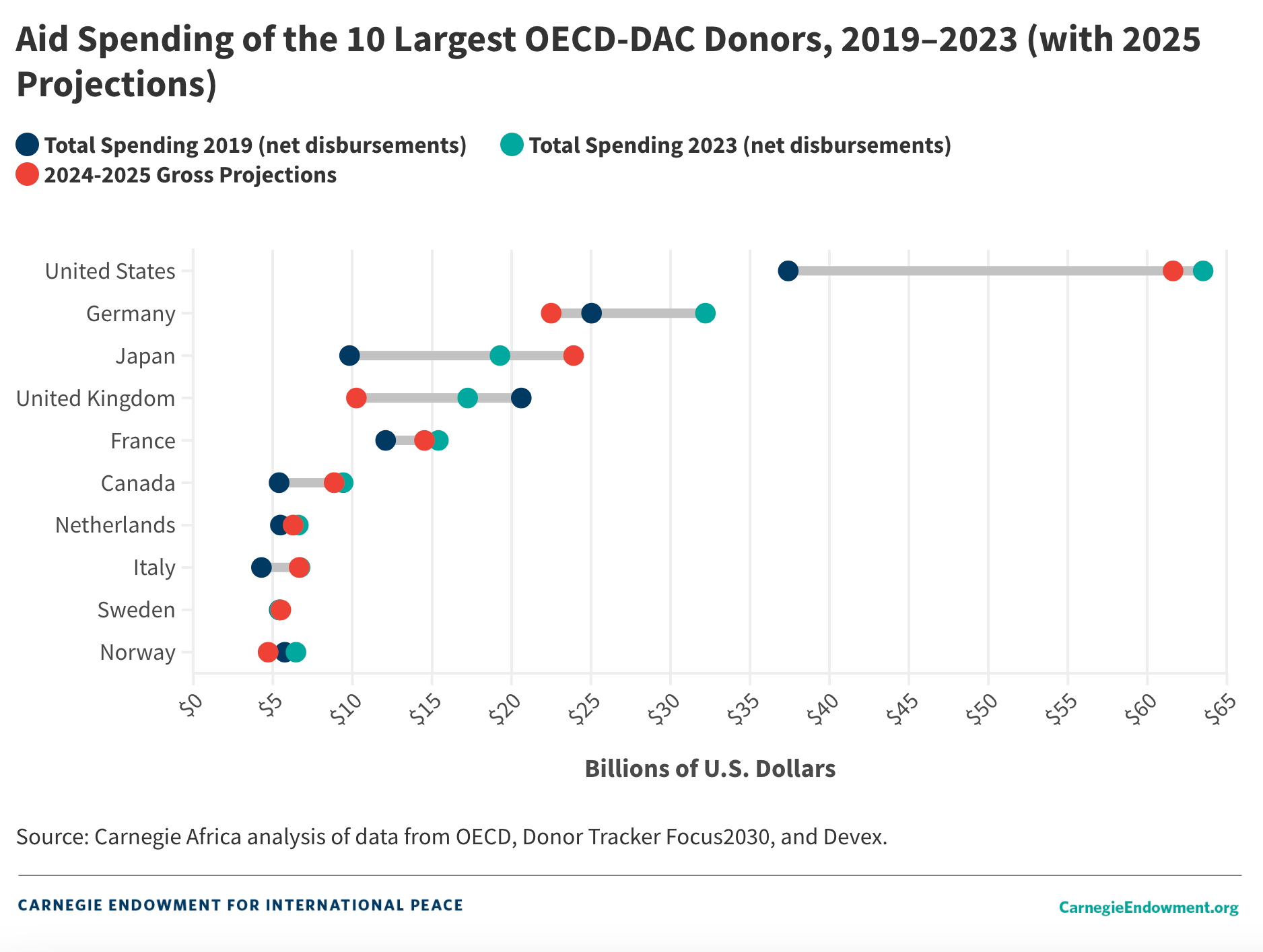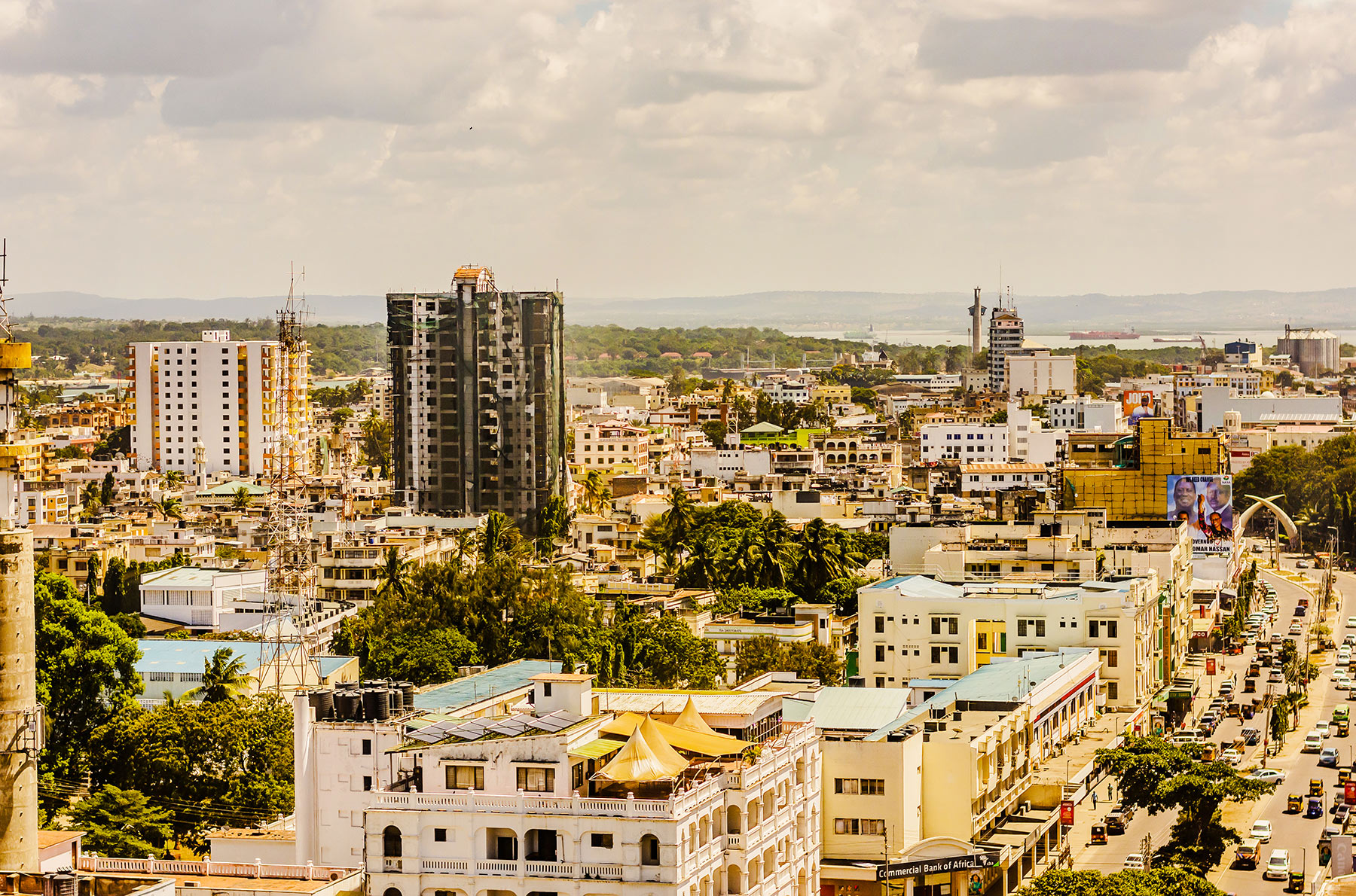October 2024
Dear friends,
The fall season brings about new conversations on the future of sustainability in Africa. The past month has seen a flurry of activity for the Africa Program. The Congressional Black Caucus Foundation recently concluded its 53rd Annual Legislative Conference (ALC), which brought together thousands of Black policy leaders and scholars across the United States and the world. On September 12, I participated in the ALC Energy Braintrust panel on the global energy transition. Moderated by Semafor’s Africa editor Yinka Adegoke, the panel discussed the ways U.S. energy industries could contribute to equitable energy transition and sustainable global energy usage. Noting the importance of critical metals, minerals, and elements, there was consensus over Africa’s resource abundance and the need for strategic partnerships that can help leverage those resources.
Toward the end of September, the Africa Program headed to New York for the seventy-ninth session of the United Nations General Assembly (UNGA). We cohosted two events and participated in several others. On September 21, in collaboration with the Office of the Secretary-General’s Envoy on Technology and the World Bank Group, the Africa Program hosted a roundtable on African AI governance for Africa’s technological ecosystem, sustainable development, and Global North–Global South collaboration. I joined Carnegie President Tino Cuéllar in conversation with experts and policymakers from Kenya, Nigeria, Rwanda, and South Korea on bridging the global tech gap to ensure equitable AI governance.
On September 23, I participated in the Minerals Security Partnership’s (MSP) inaugural Finance Network conference, which discussed the need to strengthen cooperation and promote information exchange to create sustainable supply chains for critical minerals. With the goal of fostering diverse, secure, and sustainable supply chains for critical transition minerals, the MSP Finance Network seeks to enhance collaboration and facilitate information sharing and co-financing among member institutions. I had the honor of moderating the session on “Mining Titans and New Horizons,” with Jakob Stausholm from Rio Tinto Group and Benjamin Stoikovich from Sovereign Metals. Our discussion centered on the partnerships between MSP countries and mineral-producing nations, especially those in Africa. During this conference, the MSP Forum welcomed seven new members—including the Democratic Republic of the Congo (DRC) and Zambia. We will stay tuned to how the addition of mineral-rich African nations impacts cooperation and supply-chain diversity in the months leading up to the December 2024 MSP Forum event in Brussels. On September 26, the Carnegie Africa program co-facilitated a roundtable with the Sustainable Energy for All Initiative called “Strengthening Local Value Chains for Energy Transition Solutions in the Global South.” This event convened African government officials from Ghana, Malawi, and Nigeria; international organization leaders; and private stakeholders at the SDG7 Action Forum on the sidelines of UNGA.
This past month also included travel to the continent to discuss key areas of focus for the Africa Program. I was invited to attend the UNESCO–African Union International Forum on “Transforming Knowledge for Africa’s Future” in Addis Ababa. For a plenary panel discussion on “Envisaging Africa’s Future,” I delivered a keynote address on transforming knowledge for Africa to navigate and thrive in a changing global economy. In early October, I attended the thirteenth annual Oppenheimer Research Conference in Johannesburg, South Africa. During this conference, I presented a progressing research paper on rethinking natural resource governance for a low-carbon future.
Africa Program Fellow Jane Munga had the opportunity to speak at two global events. From October 1–3, the Global Digital Public Infrastructure (DPI) Summit was held in the New Administrative Capital near Cairo, Egypt. She delivered a keynote in the panel “DPI Brewed in an African Pot.” Her presentation at the summit focused on DPI and its potential impact on Africa’s digital transformation, offering policy recommendations for the effective deployment of DPI in African countries. From October 15–16, the Organization for Economic Co-operation and Development 2024 Global Strategy Group (GSG) met in Paris, with Canada and Greece serving as co-chairs. Jane took part in a panel discussion that offered insights into the development of an inclusive and efficient global AI governance framework. She also delivered a presentation on the perceptions of risks and benefits associated with AI in Africa, along with recommendations for global AI governance.
The Carnegie Africa Program also had the pleasure of hosting two in-house roundtables with the African Minerals Development Centre (AMDC) and the World Bank respectively. On October 21, we invited the AMDC to a closed roundtable with representatives from the U.S. government, research institutions, and the African Diplomatic Corps to discuss tangible ways in which the United States can support the AMDC in its goal of becoming a world-class center for natural resource management. On October 24, we hosted the World Bank Group along with officials of the Ethiopian government and members of the international finance community to exchange insights on fostering a path for the country’s inclusive and sustainable growth.
In other news, U.S. President Joe Biden postponed, to December, his long-anticipated trip to Angola to meet with President João Manuel Lourenço after the dual effects of Hurricane Helene and Hurricane Milton. The visit will mark Biden’s first trip to the continent since the start of his term and make him the first U.S. president to visit Angola. Biden’s visit will aim to show commitment to African partners by revitalizing the 800-mile Lobito Corridor railway project that would connect inland mineral suppliers like the DRC and Zambia with Angola’s Lobito seaport. A rescheduled date has yet to be announced as Biden’s presidency comes to an end.
The 2024 BRICS Summit also happened this month, with Russia hosting the event. Since Ethiopia and Egypt joined the bloc last year, Russia’s military and political influence in Africa has become more apparent. It remains to be seen how these new African entrants into BRICS will contribute to or benefit from it. Looking forward, the 2024 Group of Twenty (G20) Summit is set to take place in Brazil in November. This will be only the second G20 Summit where the African Union participates as a full member after its invitation to join last fall.
Our Chart of the Month catalogues the outflow of official development assistance (ODA) from the top ten OECD-DAC donor countries. While ODA has generally increased over the last five years, 2024 has seen top contributors beginning to backtrack on commitments to increase their shares of aid. Read more about it in our featured quick take below.
The Africa Program is gearing up for a busy remainder of the fall. To stay up to date on our publications and programming, be sure to subscribe to our newsletter and follow us on X (formerly Twitter) at @AfricaCarnegie.
Sincerely,
Zainab Usman
Director, Carnegie Africa Program
Chart of the Month
The largest donors of these ODA funds come from the Development Assistance Committee (DAC), which includes thirty-two mostly high-income countries such as the United States, the United Kingdom, and Germany. One of the notable global financial trends of 2024 seems to be a reduction, by several DAC countries, in bilateral ODA.

Features
SUB-NATIONAL DIPLOMACY
Beyond the domestic potential of the CHIPS and Science Act, technology hubs could feature prominently in U.S. economic relations with the African continent and the rest of the world.
By Alexander Csanadi
U.S. ELECTION
This conversation discusses the implications of the upcoming U.S. presidential election for America’s engagement, particularly its trade and commercial diplomacy, with Africa.
By Zainab Usman (Foreign Policy)
TECHNOLOGY
To modernize the U.S.-Africa relationship, U.S. diplomatic and development efforts should prioritize AI-powered technologies and the broader digital transformation.
By Ramsey C. Day
SUPPLY CHAINS
Geopolitical tensions between global powers, especially the United States, China, and Japan, increase as nations vie to secure access to critical minerals, particularly in the Democratic Republic of the Congo.
By Christian-Geraud Neema (China Global South Project)
INVESTMENTS
Over the past five years, official development assistance (ODA) has broadly increased. In 2024, however, this dynamic seems to be reversing for the large donor countries.
By Zainab Usman and Tani Washington
Developments on Our Radar
- Readout of September 2024 Negotiating Round Under the U.S.-Kenya Strategic Trade and Investment Partnership [Office of the United States Trade Representative]
- Biden Postpones Trip to Germany, Angola to Focus on Hurricane Response, White House Says [Reuters]
- World Bank Cuts Africa GDP Forecast as Sudan War Stunts Region [Bloomberg]
- DRC: Is Tshisekedi going to change the constitution, hold onto power? [Africa Report]
- African countries seek $5bn for new fossil fuel project lender [Financial Times]
- China sharpens edge in global trade with zero-tariff deal for developing world [South China Morning Post]
Professional Development Opportunities
- Aspen Strategy Group Rising Leaders Program [application]
